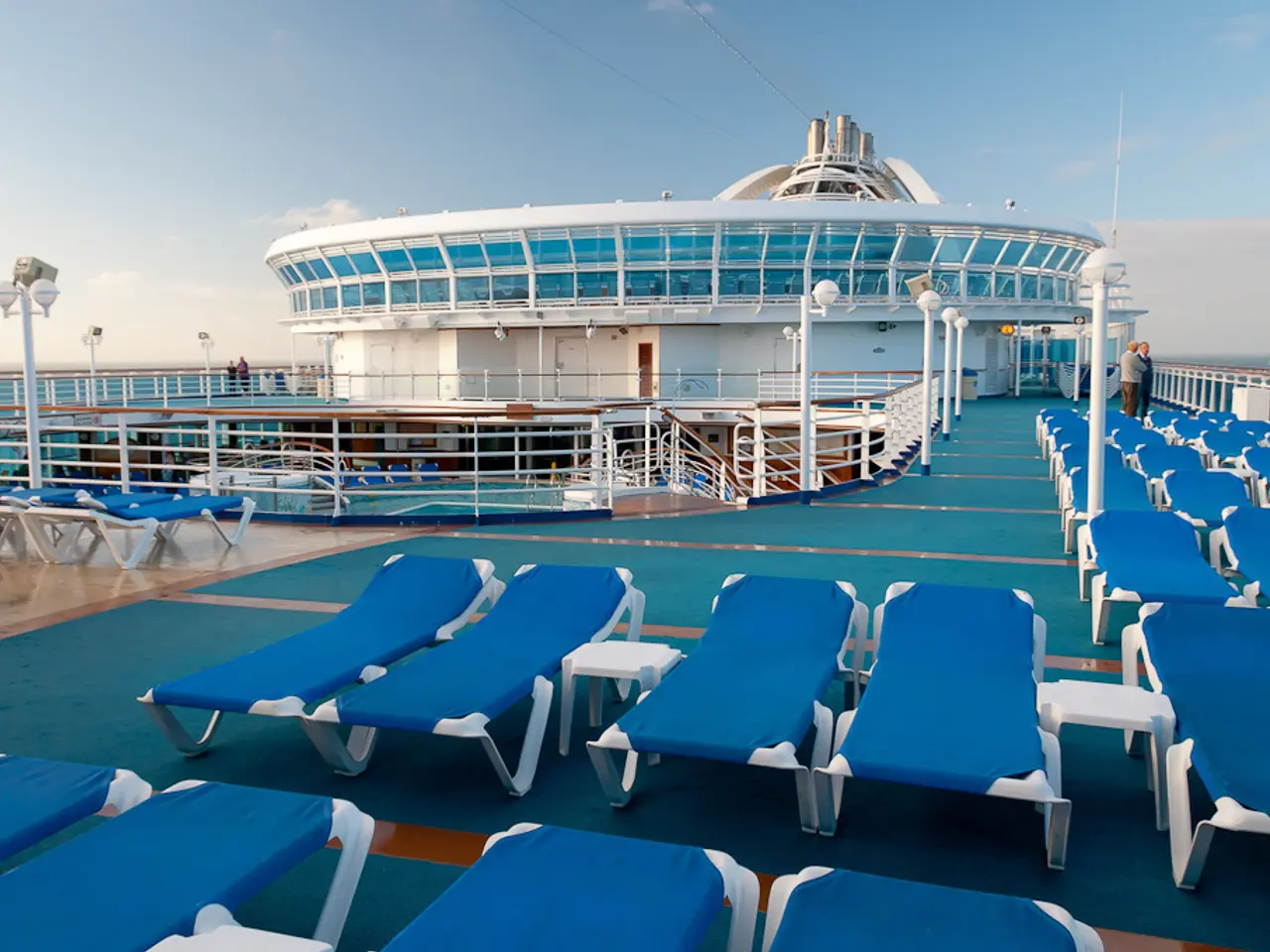Scottish ferries facing financial concerns due to budget pricing?
In the picturesque landscapes of Scotland, tourists are pleasantly surprised by the affordable ferry travel, thanks to the Road Equivalent Tariff (RET) policy. Introduced in 2008, the RET makes ferry fares equivalent to the cost of a similar road journey, stimulating tourism and supporting local economies.
The RET policy has several potential economic and environmental impacts on Scotland's ferry service and tourism. One of the most significant benefits is the boost to tourism and local economies. By making ferry travel more affordable, RET encourages more visitors to Scotland's islands, stimulating tourism growth. This increased accessibility can lead to a ripple effect, supporting local businesses and island communities by boosting economic sustainability.
The RET also supports the viability of island communities. Improved ferry affordability under RET improves access to jobs, education, health services, and social opportunities for island residents, enhancing social and cultural wellbeing. Moreover, lower ferry tariffs can reduce shipping costs for businesses on islands, facilitating trade and reducing economic barriers, leading to more robust local economies.
However, the RET policy also presents some challenges. For instance, operational constraints in ferry services may impact capacity and emergency service routes, but these are logistical rather than tariff-related and subject to adaptation.
Environmentally, the RET is part of a broader strategy that includes investment in sustainable ferry vessels powered by low-emission fuels like Liquefied Natural Gas (LNG), leading to reduced greenhouse gas emissions by approximately 20-25% compared to traditional marine gas oil. The introduction of greener, quieter ferries supported by RET aligns with Scotland’s Climate Change Plan and net-zero vessel strategy, contributing to reductions in local air pollution and noise, benefiting residents and wildlife alike.
Ports are also installing shore power systems that allow ferries to plug into renewable energy while at berth, further cutting CO2 emissions and pollution. This synergy enhances the environmental benefits of RET by ensuring the ferry network is more sustainable overall.
In summary, the RET has the potential to both economically empower island communities by increasing tourism and trade and environmentally benefit Scotland's ferry network through investment in low-emission vessels and green port technologies. However, it's essential to address the challenges posed by increased car traffic on high-volume routes, such as more motorhomes on single-track roads, more wear and tear, and more emissions.
As one spends a day watching the sun rise, shine, and set from a tent, enjoying the peace and quiet, and the fresh sea air, it's clear that the RET policy is playing a crucial role in making island destinations more attractive and accessible, supporting the long-term viability of island communities and Scotland's commitment to climate targets while securing economic benefits from tourism and trade.
[1] Scottish Government (2020). Road Equivalent Tariff: An Evaluation of the Economic Impacts. [Online] Available at: https://www.gov.scot/publications/road-equivalent-tariff-an-evaluation-of-the-economic-impacts/
[2] Scottish Government (2018). Road Equivalent Tariff: Evaluation of the Operational Impacts. [Online] Available at: https://www.transport.gov.scot/media/2671/road-equivalent-tariff-evaluation-of-the-operational-impacts-2018.pdf
[3] Scottish Government (2021). Road Equivalent Tariff: Evaluation of the Environmental Impacts. [Online] Available at: https://www.transport.gov.scot/media/10474/road-equivalent-tariff-evaluation-of-the-environmental-impacts-2021.pdf
- The Road Equivalent Tariff (RET) policy, by making ferry travel more affordable, can stimulate interest in Scotland's lifestyle and culture, particularly in the realm of tourism, while empowering local businesses and strengthening island communities' economic sustainability.
- The RET, along with investments in sustainable ferry vessels and green port technologies, contributes to Scotland's commitment to reducing greenhouse gas emissions, aligning with the Climate Change Plan and net-zero vessel strategy, and promoting a business environment that values environmentally friendly practices.





